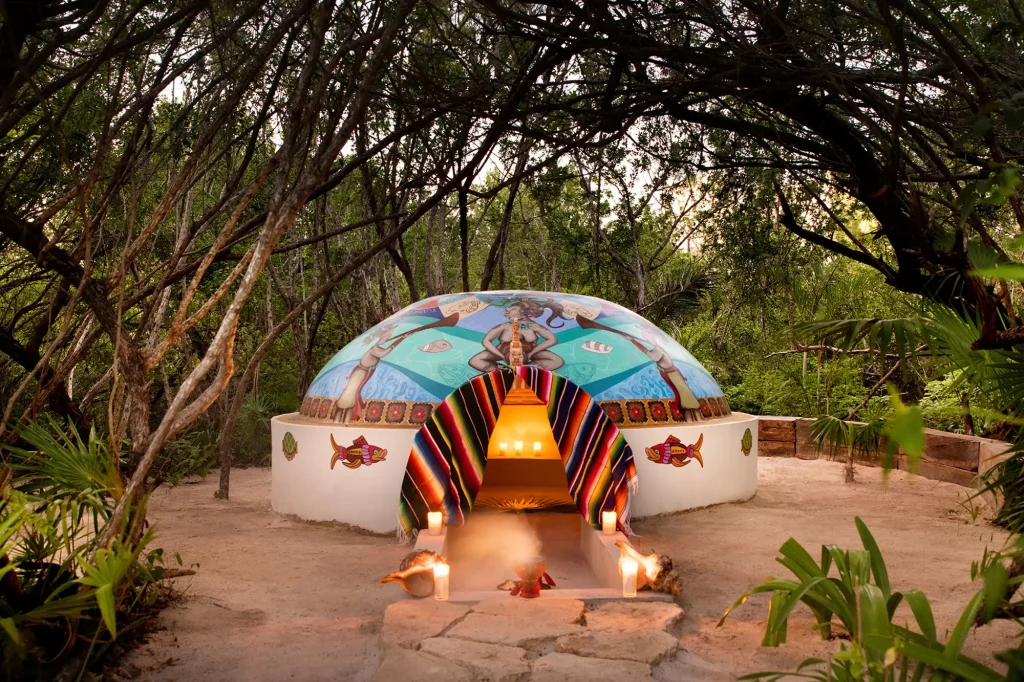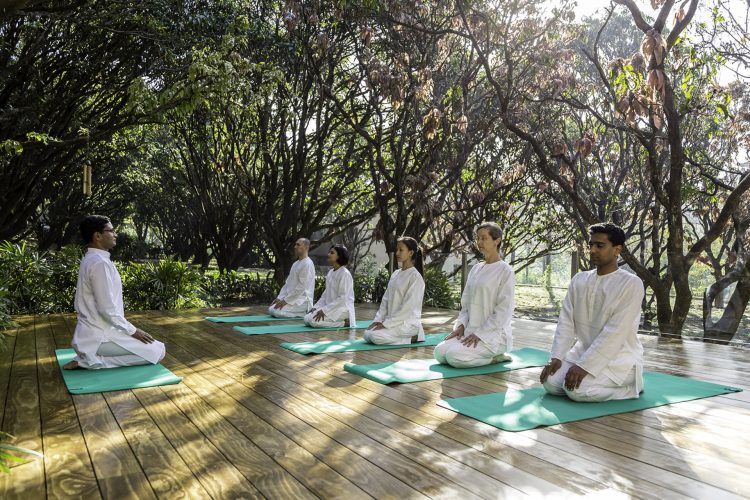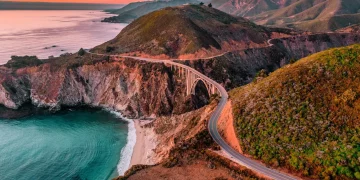The COVID-19 pandemic drastically altered the travel landscape, affecting everything from how we plan trips to how we experience new destinations. The global health crisis introduced a new era of travel, one shaped by health concerns, government restrictions, and rapidly changing public attitudes. As the world continues to navigate the aftermath of the pandemic, the travel industry is transforming in ways that reflect both challenges and opportunities.
This article explores the major travel trends that emerged during and after the pandemic, highlighting the shift in how we think about travel, the rise of new destinations, and the adaptation of travel practices. It also examines how travelers’ expectations, priorities, and behaviors have evolved and what this means for the future of travel.
1. The Rise of Remote Work and Digital Nomadism
One of the most significant trends in the post-pandemic world is the growing popularity of remote work and digital nomadism. As businesses and employees adapted to work-from-home arrangements, many realized that it was possible to work from anywhere—opening the door for a new kind of traveler: the digital nomad.
Impact on Travel:
- Extended Stays: Rather than short vacations, more people are choosing to live and work in new destinations for extended periods. Popular locations for digital nomads include Bali, Lisbon, Mexico City, and Chiang Mai, offering affordable living costs, good internet access, and vibrant expat communities.
- Workation Trend: The concept of “workations” (a blend of work and vacation) has gained momentum, with travelers seeking destinations that offer both productive work environments and relaxing experiences during their free time.
- Co-Working Spaces and Wi-Fi Culture: The demand for co-working spaces has soared, as digital nomads seek flexible working environments. Many hotels, resorts, and even cafes now offer high-speed internet and comfortable workspaces to cater to this growing segment.
Things to Consider:
- Destinations are adapting by offering special packages for remote workers, including visa schemes that allow long-term stays.
- With more people working remotely, destinations are investing in infrastructure to cater to digital nomads, such as creating collaborative spaces and improving internet access.
2. Wellness Travel: Focus on Health and Well-being
The pandemic highlighted the importance of health, both physical and mental. As a result, wellness tourism emerged as one of the leading trends in the travel industry. Travelers are increasingly seeking experiences that prioritize well-being, from relaxing spa retreats to mindful nature escapes.
Impact on Travel:
- Spiritual and Wellness Retreats: Destinations such as Costa Rica, Bali, and Thailand saw a surge in demand for yoga retreats, detox programs, and mindfulness courses. These types of getaways allow travelers to rejuvenate both body and mind, providing solace during uncertain times.
- Health-focused Resorts and Hotels: Wellness resorts and hotels have seen a rise in bookings, offering services such as spa treatments, organic dining, fitness programs, and holistic therapies to support both physical and mental well-being.
- Nature and Outdoor Escapes: Outdoor travel and nature-based experiences became more popular during the pandemic as people sought safe and socially distanced activities. Hiking, camping, and exploring national parks offered ways to reconnect with nature and reduce stress.
Things to Consider:
- As wellness tourism grows, travelers are seeking destinations that can provide a mix of relaxation, health-conscious food options, and opportunities to unwind.
- Countries and resorts are capitalizing on this demand by creating bespoke wellness packages and offering specialized treatments and therapies.

3. The Demand for Private and Remote Destinations
With concerns about crowded spaces, many travelers have shifted their focus to private, remote, and off-the-beaten-path destinations. The desire for safety and privacy has led to an increase in interest in vacation rentals, private villas, and secluded destinations, as well as a preference for less crowded regions.
Impact on Travel:
- Private Accommodation: Rental platforms like Airbnb and Vrbo have seen substantial growth, with travelers seeking private homes, villas, and apartments that allow them to avoid shared public spaces and have more control over their surroundings.
- Remote and Lesser-known Destinations: Popular tourist cities have seen a decline in visitors as travelers seek to explore lesser-known destinations with fewer crowds and more space to roam. Places such as the Faroe Islands, Albania, and Greenland have become increasingly attractive options for those seeking isolation and tranquility.
- Private Tours and Experiences: There has been an increase in demand for private tours, tailored experiences, and personalized itineraries. This trend has allowed travelers to enjoy a more intimate and unique experience, away from large groups.
Things to Consider:
- As travelers prioritize privacy, destinations that offer exclusive experiences, such as private yacht charters, luxury safari camps, and boutique hotels, have seen a rise in popularity.
- Remote destinations that provide seclusion, such as mountain retreats, islands, and rural hideaways, have become particularly appealing in the post-pandemic era.
4. Sustainable Travel and Eco-tourism
The pandemic caused a shift in the way many people view the environment and their role in protecting it. Sustainability became a primary concern, leading to a rise in eco-conscious travel, where people are more aware of the impact their travel choices have on the planet.
Impact on Travel:
- Eco-friendly Accommodations: More travelers are opting for eco-friendly accommodations that prioritize sustainability. This includes hotels and resorts that use renewable energy, minimize waste, and promote conservation efforts.
- Low-impact Transportation: With the decline in air travel, more people turned to train travel, road trips, and even cycling tours as eco-friendly alternatives. The idea of “slow travel,” where travelers take time to experience the journey rather than rushing through it, gained traction.
- Sustainable Tours and Activities: Travelers are now choosing experiences that align with sustainable tourism practices, such as nature conservation tours, wildlife safaris with a focus on preservation, and visiting eco-friendly farms and production sites.
Things to Consider:
- Travelers are looking for destinations that focus on sustainable practices, including low-impact tourism, eco-friendly hotels, and preservation of natural resources.
- The growing awareness around the environmental impact of travel has led to a stronger push for destinations and companies to embrace eco-conscious initiatives.
5. Increased Flexibility in Travel Planning
As the pandemic caused global uncertainty, travelers became more cautious about their travel plans. Many wanted to ensure that they could adapt or change their bookings if necessary, leading to a rise in flexible travel options.
Impact on Travel:
- Flexible Bookings and Cancellations: Airlines, hotels, and tour operators began offering more flexible booking policies to accommodate last-minute changes. This includes free cancellations, rebooking options, and more transparent travel insurance policies.
- Last-minute Travel: The uncertainty of the pandemic led to an increase in last-minute travel bookings. Many travelers were hesitant to plan too far in advance, preferring to wait until they were certain of travel restrictions and safety guidelines.
- Insurance and Health Security: Travel insurance that covers COVID-related disruptions has become more essential. Many travelers now seek assurances that their trips will be protected against potential cancellations or changes due to health reasons.
Things to Consider:
- Travelers will continue to prioritize flexibility, and destinations will need to ensure that their booking systems and policies can accommodate changing conditions.
- There will be an ongoing demand for clear communication from airlines, accommodations, and tour operators to help travelers navigate the ever-changing landscape of travel restrictions.
Conclusion: The New Era of Travel
As the travel industry continues to recover from the effects of the pandemic, new trends are shaping the future of travel. Remote work, wellness tourism, private getaways, eco-tourism, and increased flexibility are just a few of the major shifts in the way people approach travel. As we look ahead, travelers are increasingly prioritizing safety, sustainability, and personalized experiences. These changes represent an exciting opportunity for both travelers and the tourism industry to evolve and adapt to a new world of travel—one that is more conscious, flexible, and centered on well-being.





















